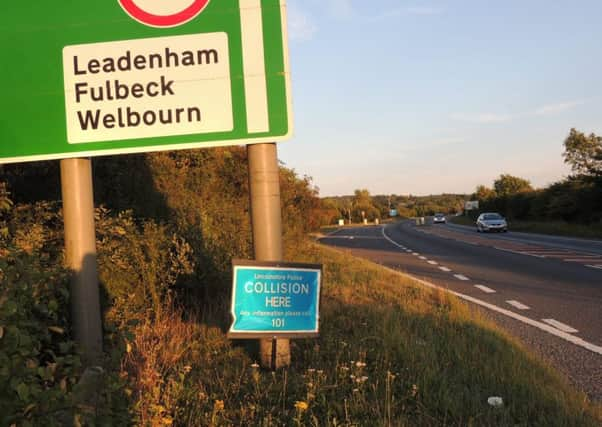Why drivers are still dying to get there in 2017


The official figure for the 12 months stands at 49, compared to the ‘spike‘ of 59 for 2016. But with road deaths in the county falling by 50 per cent in the last decade, John Siddle of Lincolnshire Road Safety Partnership says they are far from congratulating themselves.
He said: “The start of the year was terrible. The incidents were coming in thick and fast and that was of great concern to us. It is still a shame that we are looking at 49 families having lost loved ones.
Advertisement
Hide AdAdvertisement
Hide Ad“If we had 49 people dead attributed to one single action on the public road, we would not accept that, but in order for people to live their lives it has almost become acceptable that sadly, someone, somewhere has to die on the roads. Our purpose is to try and prevent as many as possible - that goes for all walks of life.”
He said there was no way they could give novice drivers the necessary experience apart from showing them ways to stay safer through various promotional events and social media.
Mr Siddle added they were still looking at new ways to reach more people and the road safety summit in November organised by the Police and Crime Commissioner Marc Jones had produced food for thought.
“In 2018 we are starting to do more with people driving for work and fleet managers who have lots of company vehicles, to pass on some safe elements into their driving,” he said. “If we can eliminate some of the bad driving behaviour, maybe we can save more lives.”
Advertisement
Hide AdAdvertisement
Hide AdHe also noted on social media that impatient drivers making rash maneouvres checking for dangers and the use of mobile phones while driving was becoming more socially unacceptable.
“It is a matter of getting those drivers to recognise that their actions are absolutely futile - and they are not isolated to young people, they are right across the board, men and women, commuters and van drivers who persistently try to do these injudicious overtakes,” he said. “Continuing that behaviour will eventually lead to them becoming a victim. We have more rural roads than other counties and you have to adapt your driving - that is part of the contract in holding a driving licence.”
One way would be to set the standard higher for driving tests, he suggested.
The recent ground-breaking conviction of a Lincolnshire driver for causing the death of a motorcyclist while distracted using a hands-free phone kit was seen as significant. Mr Siddle said they need more independent research which could lead to a change in the law, forcing car manufacturers and mobile phone companies to step into line and offer less in-car technology likely to distract.
Advertisement
Hide AdAdvertisement
Hide AdMr Siddle believed the wider use of dashcams may make people ‘think twice’ too. This has been adopted in a road safety scheme in South Wales, known as Operation Snap, where drivers caught on dashcams can be warned or prosecuted. “If we did that countrywide that would certainly reduce incidents. People do not want to risk getting caught,” he said, but he admitted the logistics and costs in a large county could be prohibitive at present.
On a proactive note, LRSP are preparing to start their expanded Community Speed Watch scheme, where volunteers are trained to use speed guns and report persistent speeders. A county co-ordinator is in place and area co-ordinators are being drawn from police volunteers. Training and assessments could be completed by the spring.